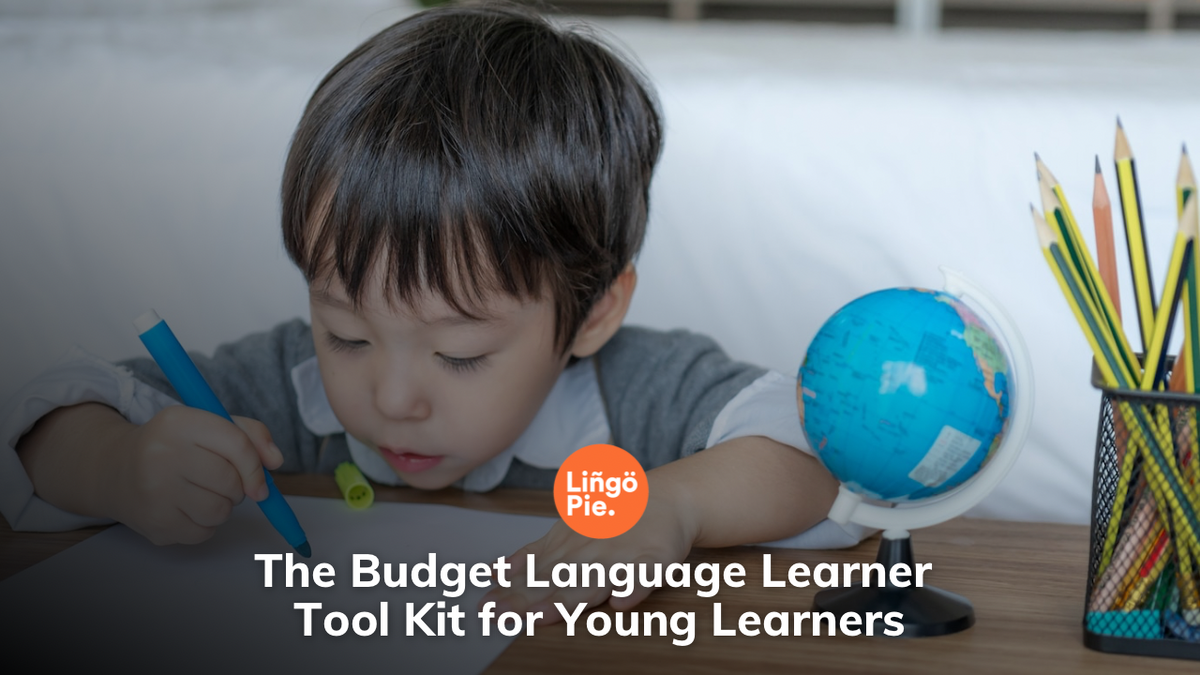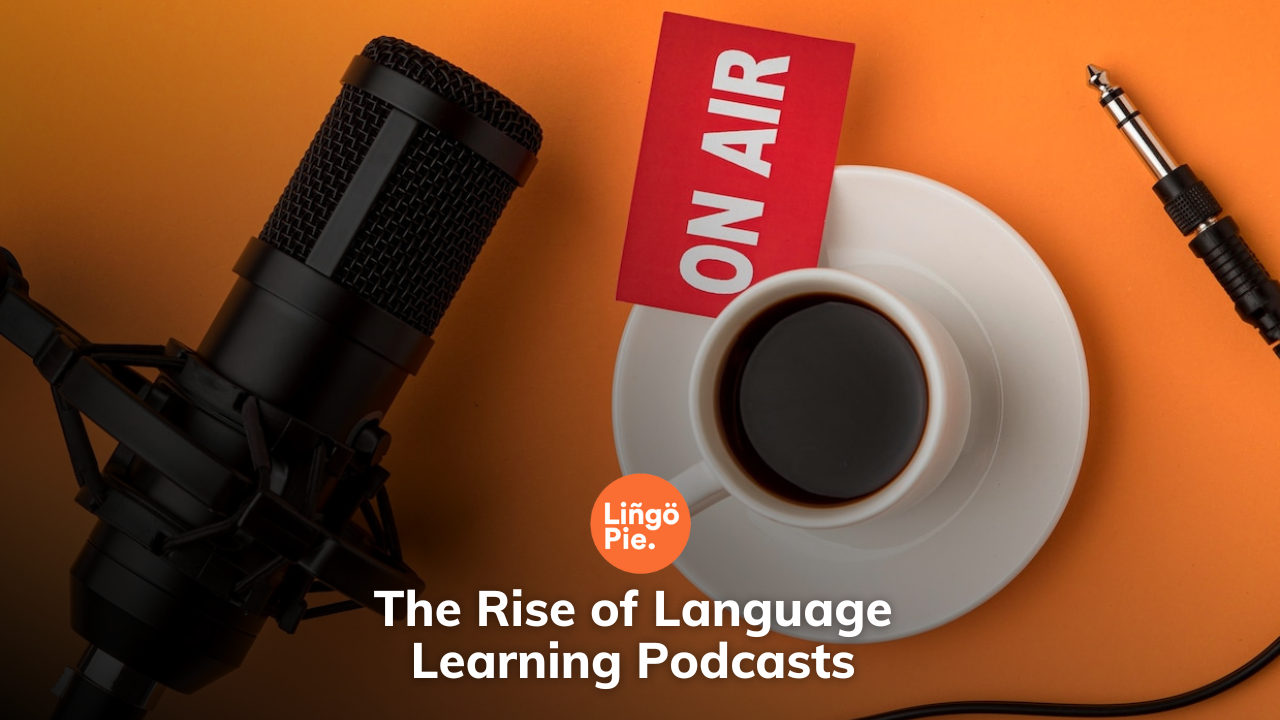Language learning holds tremendous importance for young learners, providing them with valuable skills and opportunities for personal and academic growth. However, budget constraints can pose challenges for those seeking to embark on their language-learning journey.
In this article, we present the budget language learner tool kit specially designed for young learners who are eager to explore the world of languages without breaking the bank.
This comprehensive guide will equip young language enthusiasts with essential resources, strategies, and cost-effective alternatives to facilitate their language acquisition. Let's dive in and discover how to make language learning an enriching and affordable adventure for young learners.

Table of Contents
- Why Young People Should Learn Languages
- Language Learning: Where to Begin
- Budget-Friendly Language Learning Tools
- Free or Low-Budget Learning Platforms
- Foreign-Language TV and Movies
- Music, Podcasts, and Radio
- Talking with Native Speakers
- Self Study and Independent Learning
- FAQs About Learning a Language on a Budget
- Summing Up: The Budget Language Learner Tool Kit for Young Learners
Why Young People Should Learn Languages

Young people should learn languages for numerous compelling reasons. First, being proficient in multiple languages broadens their cultural understanding, fostering empathy and global awareness.
Second, it enhances cognitive abilities, including problem-solving and critical thinking skills. Learning languages at a young age also improves memory, concentration, and multitasking capabilities.
Third, it opens up a wider range of career opportunities in an increasingly interconnected world. Young people who want to work overseas or get hired by international companies can benefit from having a second, third, or fourth language.
Fourth, language learning promotes adaptability and flexibility, enabling young people to communicate and connect with diverse individuals and communities. It also teaches discipline and patience, as learning a language is often not a linear process and there will be natural setbacks.
Ultimately, learning languages equips young people with invaluable lifelong skills for personal, academic, and professional success. To embark on a successful language-learning journey, it is essential to understand the value and benefits of learning languages from a young age.
Learning languages not only opens doors to new cultures and experiences but also enhances cognitive abilities, improves problem-solving skills, and boosts creativity. Young learners who become proficient in multiple languages gain a competitive edge in an increasingly globalized world.
Language Learning: Where to Begin
Language learning can feel overwhelming, but knowing where to begin can set you on the right path. Start by identifying your motivations and the language you want to learn.
Research resources like language-learning apps, online courses, and textbooks that suit your learning style and budget. Then, begin with the basics: learning common phrases, greetings, and essential vocabulary.
When setting out to learn a new language, it's crucial to set realistic goals that align with your time, commitment, and interests. Track your progress by completing online language-level tests and keeping records of your scores.
Practice listening and speaking through conversations or language exchange programs. Gradually introduce reading and writing exercises. Consistency and patience are key. Remember, every small step you take brings you closer to language proficiency.
By laying a strong foundation in language learning basics, young learners can unlock a world of opportunities and pave the way for future success.
Budget-Friendly Language Learning Tools

When it comes to language learning on a budget, there is no shortage of accessible and affordable options available. From free and low-budget learning platforms and foreign-language TV shows and movies to music, podcasts, and radio, and access to native speakers, you can come up with an independent learning schedule that works for you and enables you to learn a language on a budget.
Free or Low-Budget Learning Platforms
One great option is exploring free or affordable language-learning platforms, like Lingopie and some online courses, which offer a wide range of language resources at no cost or minimal subscription fees.
Unlike structured language lessons, free and low-cost online platforms allow you to develop your reading, writing, listening, and speaking skills at your own pace, without breaking the bank. Speak to fellow language learners and visit language forums to discover which online platforms are hot right now.
Low-cost internet resources can be just as valuable as expensive resources and courses for language learning. Just because something costs more doesn't always mean it is better quality. With dedication, self-discipline, and a strategic approach, low-cost internet resources can provide the necessary tools to achieve language proficiency without overspending.
Foreign-Language TV and Movies
Foreign-language TV shows and movies are excellent low-cost resources for language learning. Streaming sites like Lingopie and Netflix offer an immersive, effective, and enjoyable learning experience.
English language learners often learn very quickly due to the sheer volume of great English-language media out there. Similarly, by immersing yourself in content in your target language, you can see significant improvements in your comprehension, accent, and vocabulary in as little as three months.
With Lingopie's curated selection of foreign-language TV shows and movies, you can explore different cultures while acquiring a new language. You can learn languages through authentic and entertaining content. Lingopie offers content in French, German, Spanish, Italian, Portuguese, Russian, Korean, and Japanese.
For other popular languages like Chinese and Arabic, add the Lingopie extension to your browser and find content on Netflix. Lingopie offers a browser extension that enhances language learning on Netflix by providing subtitles in both the target language and your native language simultaneously.
This feature allows you to follow along with your favorite shows in a new language, understand context, and improve vocabulary and comprehension.
Read Also:

Music, Podcasts, and Radio
Music, podcasts, and radio are powerful resources for language learning as well. Listening to music in your target language exposes you to native pronunciation, rhythm, and vocabulary. You can find lyrics and translations online to follow along and improve your understanding.
Podcasts offer a wide range of topics and conversations, allowing you to practice listening comprehension and learn new vocabulary in context. Radio programs provide real-time exposure to the language, helping you develop an ear for natural speech patterns.
By incorporating music, podcasts, and radio into your language learning routine, you immerse yourself in authentic content and make language learning a fun and engaging experience.
Related:

Talking with Native Speakers
Engaging in conversations with native speakers is a valuable and budget-friendly way to enhance language learning. Numerous online language exchange platforms connect language learners worldwide, offering opportunities to practice speaking and improve fluency.
You can also join language conversation groups or find language partners in your local community. Interacting with native speakers provides authentic language input, cultural insights, and the chance to practice in real-life scenarios. Moreover, it builds confidence and helps refine pronunciation and intonation.
Through these interactions, you not only develop language skills but also forge meaningful connections and gain a deeper understanding of the culture associated with the language you are learning.
Self Study and Independent Learning

For those seeking cost-effective alternatives to traditional language-learning methods, self-study and independent learning approaches can be highly effective.
Utilizing resources like language-learning apps, podcasts, YouTube channels, and social media accounts can provide ample opportunities to practice and improve language skills without teachers and more formal learning approaches.
Make flashcards, stick post-its to items in your home with their translations written on them, and record yourself speaking to check your pronunciation. Journal in your new language, read the latest tips by language experts and don't neglect to read up on grammar.
By following these tips, you can quickly gain the ability to communicate in a second language.
FAQs About Learning a Language on a Budget
Let's look at some frequently asked questions about foreign-language learning on a budget.
How can I teach myself a language?
Teaching yourself a language requires self-discipline, consistency, and a variety of resources. Download a language-learning app, book an online course, buy a textbook, and have an immersive experience like watching movies or engaging with native speakers.
Where can I learn languages for free?
You can learn languages for free through online streaming sites, social media accounts, and YouTube channels. Additionally, there are some free language-learning materials and resources online, including lessons, exercises, and audio recordings.
Is it harder to learn a language on a budget?
Learning a language on a budget may require more resourcefulness and self-guided learning, but it is certainly possible and not necessarily harder. With the abundance of free or affordable language-learning resources available online, budget-conscious learners can still achieve proficiency with dedication and consistent practice.
Do you have to go abroad to learn a language?
While studying abroad can provide an immersive language-learning experience, it is not the only way to learn a language. With technological advancements, online language courses, language exchange programs, and cultural immersion activities within your own community, you can learn a language effectively without leaving your home country.

Summing Up: The Budget Language Learner Tool Kit for Young Learners
Language learning is not limited by budget constraints. There is a plethora of free or low-budget learning platforms, such as Lingopie, that provide accessible resources. Immersing yourself in foreign-language TV shows, movies, and music offers a fun and engaging way to improve language skills.
Podcasts and radio programs can expose you to authentic conversations and cultural insights. Interacting with native speakers through language exchange programs enhances your speaking skills.
Finally, self-study and independent learning empower you to tailor your language-learning journey to your needs. With these resources and approaches, language learning becomes an enriching and affordable adventure.







![5 Official Spanish Language Tests To Show Your Proficiency Level [Guide]](/blog/content/images/size/w300/2025/06/Spanish-Language-Tests.jpg)
![Why Memorizing Spanish Words Won’t Make You Fluent [Tips]](/blog/content/images/size/w300/2025/06/how-to-practice-spanish-vocabulary.jpg)
![How to Improve Your Polish Conversation Skills [5 Best Tips]](/blog/content/images/size/w300/2025/06/improve-polish-conversation-skills.jpg)
